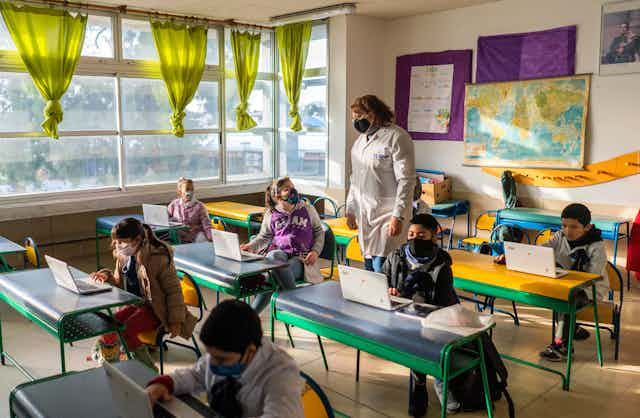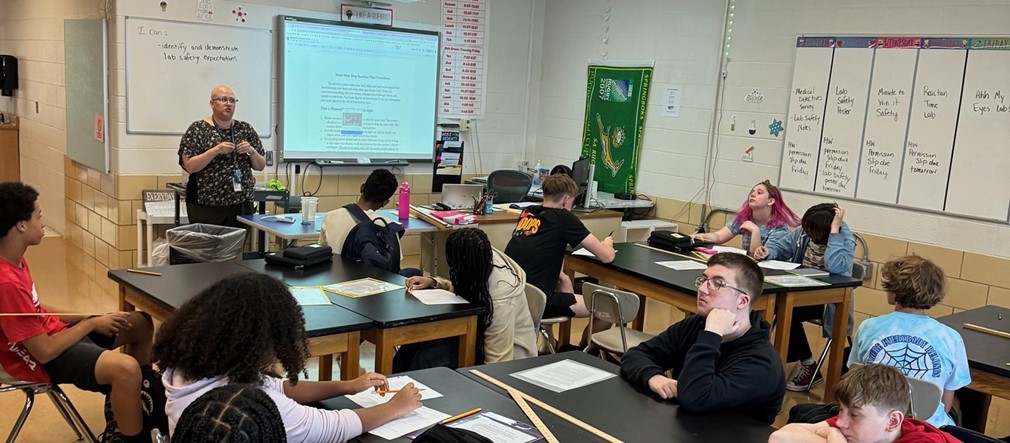Join Us: Events and Campaigns to Save Temecula Schools
Wiki Article
Exactly How Schools Play a Vital Function in Shaping Future Leaders and Trendsetters
Schools contribute fit future leaders and pioneers via the cultivation of critical reasoning, imagination, and collaboration. By integrating project-based discovering and interdisciplinary studies, schools challenge students to evaluate and synthesize complicated info. Teachers function as advisors, assisting students and nurturing their possibility, while after-school activities even more develop management abilities and strength. This vibrant atmosphere not only concentrates on individual staminas but likewise stresses the significance of team effort, essential for navigating tomorrow's challenges. Just how exactly do these components interplay to produce a robust foundation for future success?Promoting Vital Thinking
In today's swiftly evolving world, fostering essential believing within academic establishments has ended up being critical. As culture comes to grips with progressively complex international challenges, the capability to assess, review, and synthesize info is necessary. Colleges play a vital function in developing these skills, preparing pupils to browse and attend to multifaceted troubles with notified, reasoned decisions.To cultivate critical thinking, teachers use various pedagogical methods that motivate energetic understanding and intellectual involvement. Classroom conversations, problem-based knowing, and Socratic questioning are crucial in promoting logical and reflective mind. By challenging pupils to interrogate assumptions and consider numerous perspectives, these approaches make sure a much deeper understanding of subject issue past rote memorization.
Furthermore, integrating critical assuming across the educational program strengthens its significance and applicability in varied contexts. Subjects such as mathematics, scientific research, history, and literary works each deal one-of-a-kind possibilities to develop trainees' vital faculties. As an example, assessing historical occasions requires comprehending and assessing resources context, while scientific inquiry demands extensive theory testing and evidence-based thinking.
Inevitably, instilling essential thinking abilities in trainees furnishes them with the cognitive devices required for long-lasting knowing and adaptability. It is through this fundamental skills that future leaders will certainly be able to innovate, solve issues, and contribute meaningfully to society.
Encouraging Imagination
Accepting creative thinking within educational frameworks galvanizes trainees to assume beyond conventional borders and discover cutting-edge services. By integrating imaginative endeavors and creativity exercises right into the educational program, schools grow an environment where creativity and imaginative idea are valued. This technique not only improves the educational experience yet also furnishes students with the capacity to take on real-world difficulties in unique means.School can promote creativity via varied methods such as project-based learning, interdisciplinary studies, and the unification of arts and modern technology. Project-based discovering, as an example, encourages pupils to apply their understanding in sensible, commonly collective, jobs that demand inventive analytic abilities. Interdisciplinary studies permit students to draw links between different topics, thus broadening their perspectives and enhancing their innovative capabilities.
Furthermore, offering pupils with chances to engage with arising modern technologies, such as coding and electronic design, additionally supports their innovative potential. These activities prompt trainees to experiment, fall short, and repeat, which are essential components of the imaginative process (Save Temecula Schools). By maintaining an encouraging setting where testing is encouraged, schools can make certain that pupils develop the self-confidence to seek ingenious ideas
Essentially, nurturing creativity in educational setups is crucial for shaping future leaders and trendsetters efficient in resolving complicated worldwide issues with resourcefulness.
Promoting Partnership

Executing group-based understanding modules and cooperative projects enables students to experience the characteristics of teamwork firsthand. This not just prepares them for the collaborative nature of modern work environments yet additionally supports leadership high qualities as they usually have to take on roles such as task managers or team coordinators. In addition, collaboration in the classroom can break down social barriers and advertise inclusivity, making certain that each pupil feels valued and listened to.
Furthermore, incorporating innovation can better sustain joint efforts. Tools like shared interactive platforms and digital offices make it possible for pupils to collaborate efficiently, even outside the classroom. As pupils create these joint skills, they are better furnished to deal with intricate challenges and introduce, laying the foundation for their future roles as leaders and pioneers.
Role of Teachers as Mentors

Mentorship entails individualized interest, where teachers recognize and support specific strengths and address weaknesses. Save Temecula Schools. With one-on-one interactions, teachers can customize their guidance and assistance to fulfill each pupil's unique requirements, cultivating a feeling of self-confidence and strength. This tailored technique cultivates a growth way of thinking, encouraging students to check out failings as possibilities for learning and development
Additionally, educators act as role models, showing the values of compassion, perseverance, and integrity. click here for more Their perspectives and activities offer a blueprint for students to mimic, instilling a feeling of moral duty and social understanding. By developing a comprehensive and helpful classroom environment, educators enable trainees to establish interpersonal skills that are vital for reliable leadership.
Fundamentally, the mentorship given by teachers lays a fundamental framework for the advancement of future leaders, outfitting them with the expertise, skills, and worths needed to master an ever-evolving world.
Influence of After-school Activities
When incorporated effectively into the academic structure, extracurricular tasks dramatically improve student growth and leadership capacity. These tasks offer trainees with possibilities to explore interests beyond the conventional curriculum, fostering a versatile skill set.Moreover, extracurricular involvement motivates creative thinking and advancement. Pupils participated in dramatization, songs, or dispute clubs learn to believe critically and strategy problems from varied point of views. These experiences instill self-confidence, enabling trainees to articulate their ideas and take effort in different setups. By working together with peers from different backgrounds, students likewise create empathy and communication skills, essential traits for go to my blog future leaders.
Study shows that students entailed in such programs have a tendency to have greater qualities and far better attendance records. Hence, institutions that prioritize a balanced technique to education and learning, integrating durable extracurricular programs, are extra likely to produce leaders and pioneers geared up to fulfill the obstacles of the future.

Final Thought
In conclusion, institutions substantially form future leaders and innovators by supporting vital thinking, imagination, and partnership among pupils. By fostering an encouraging environment that values private strengths and synergy, schools equip students with the essential abilities to navigate future difficulties and drive development.As students establish these collective skills, they are better furnished to deal with intricate difficulties and innovate, laying the foundation for their future duties as trendsetters and leaders.
By promoting critical reasoning and problem-solving abilities, instructors aid pupils navigate complicated challenges, preparing them for leadership roles in different fields.
By collaborating with peers from various backgrounds, students also establish empathy and interaction Bonuses abilities, crucial qualities for future leaders.
In verdict, colleges considerably form future leaders and pioneers by nurturing vital thinking, imagination, and partnership among trainees. By promoting an encouraging environment that values individual strengths and team effort, institutions gear up trainees with the essential skills to browse future obstacles and drive innovation.
Report this wiki page